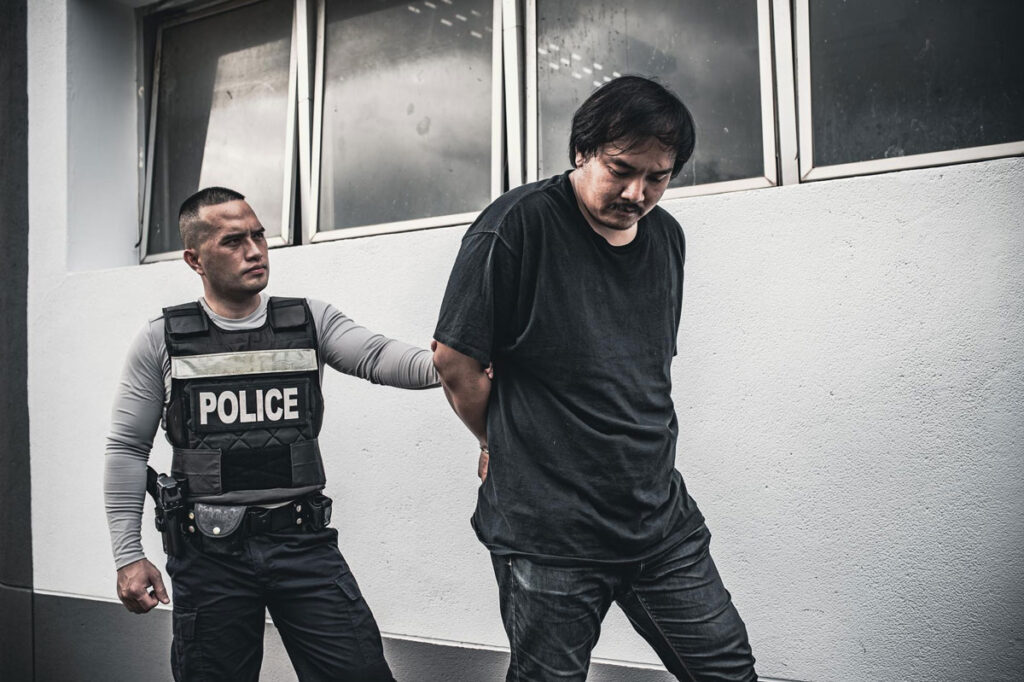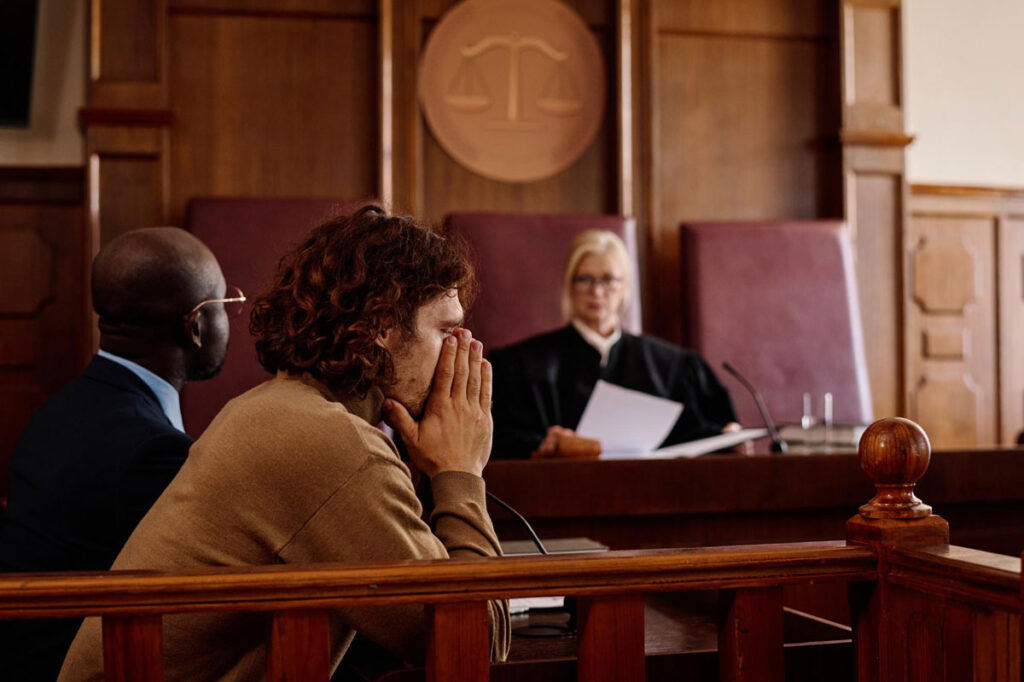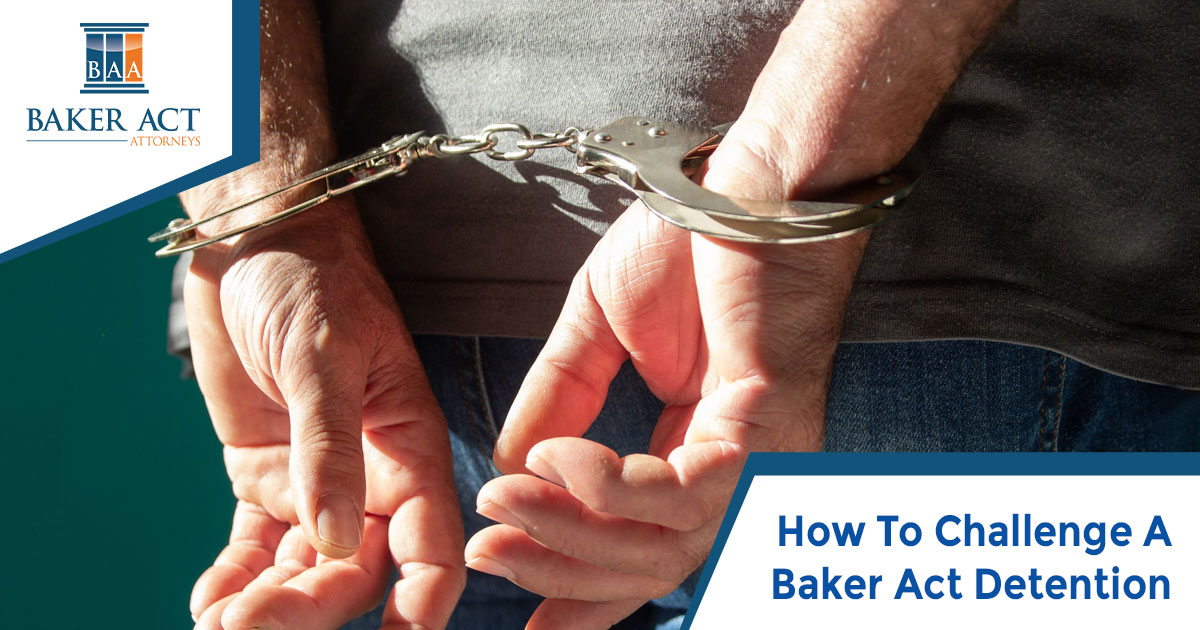Being wrongfully detained under the Baker Act can be a highly distressing experience. If you (or a loved one) have been improperly detained under the Act, you need to understand your legal options as soon as possible so that you can move quickly to secure your release. Challenging a Baker Act detention can be complicated and stressful – but thankfully, Florida’s top Baker Act attorneys are here to guide you through the process.

Baker Act 101: The Basics Of Detention
The Baker Act is an important tool for helping those with serious mental illness be assessed and stabilized when they are in crisis. The Act sets out the process in terms of which someone may be detained and held in a receiving facility for an assessment and care (this is called ‘involuntary examination’ in the Act). However, the Act is not always implemented correctly, and wrongful detentions do occur. Before we explain the process for challenging a Baker Act detention, it’s important to first discuss how detention might be initiated, and the criteria that must be met for a lawful detention.
How is detention initiated?
Someone may be involuntarily detained in one of three ways. First, a law enforcement officer who encounters a person they reasonably believe meets the legal criteria for involuntary admission and assessment may take the person into custody and deliver them to the nearest receiving facility. Second, a psychiatrist, physician, clinical psychologist, or licensed social worker who has observed behavior in a person who meets the legal criteria for involuntary admission may execute a professional’s certificate and request that law enforcement take them to the nearest receiving facility. Third, any concerned individual who believes a person meets the criteria for involuntary admission may petition the court to order that the person be taken into custody for involuntary examination and stabilization.
Criteria for involuntary detention and examination
Regardless of how Baker Act proceedings are initiated, three criteria must be met before a person can be lawfully detained and held in a treatment facility for involuntary examination:
- They must be experiencing mental and/or emotional impairment to such a degree that they are unable to control their actions, or are unable to perceive reality, and as a result, cannot cope with the demands of daily life;
- They are refusing to undergo a psychiatric assessment or are so impaired that they are unable to discern that they need an assessment; and
- If they are not detained under the Baker Act and held for involuntary assessment and treatment they are likely to suffer serious neglect or are likely to cause significant harm to themselves or those around them.
There must be clear evidence that a person meets the above criteria before they can be taken into custody under the Act. If you think these criteria haven’t been met in either your own case or the case of a loved one, it is vital that you take steps to challenge the unlawful Baker Act detention immediately.
Common Examples Of Flawed Detention Decisions
Unfortunately, there are many cases every year of flawed Baker Act detention decisions. If a law enforcement officer has exercised their discretion to take someone into custody under the Baker Act when no grounds exist for doing so, or a healthcare professional misjudges a person’s behavior and initiates a Baker Act process when it is not the appropriate intervention, their decision should be challenged. Equally, if a judge grants a petition for involuntary examination when the allegations in the petition are untrue, the detention should be challenged.
Common factors leading to a flawed Baker Act detention involve substance abuse and accidental medication overdoses. If someone is struggling with substance use, they are disqualified from being subject to Baker Act proceedings: the correct legal intervention in such cases is a Marchman Act filing, which deals specifically with drug and alcohol abuse issues. Someone who has accidentally consumed too much medication and fallen ill, but who did not intend to self-harm, should also not be subject to Baker Act proceedings. In all cases of wrongful detention, you must act as quickly as possible. If you don’t know where to begin, contacting a reputable Baker Act attorney should be your first port of call.

Challenging A Wrongful Baker Act Detention
There are several ways to challenge involuntary detention and examination under the Baker Act. The approach that will work best for you will depend on the circumstances of your case, and the route by which the wrongful detention was initiated. Your attorney will be able to advise you on the most strategic course of action and will help to prepare the legal filings and evidence necessary to successfully challenge the Baker Act detention decision.
Appealing the court order
If you or your loved one were Baker Acted in terms of a court order, then you can initiate appeal proceedings to overturn the court’s decision. You will need to show that the court made a fundamental error in granting the petition for involuntary examination. A high threshold must be met before a court will reverse the first court’s decision, so you will need to present convincing evidence demonstrating the court’s error.
Filing a writ of habeas corpus petition
In cases where you (or your loved one) have been Baker Acted by a law enforcement official or a medical professional, a writ of habeas corpus will likely be the most effective way to challenge the Baker Act detention. In essence, it is a petition brought by an attorney on behalf of a patient who requests that the court hold a hearing to determine if their confinement is lawful. In the petition, you will need to allege how the law has been misapplied and produce evidence to substantiate your claim that there is no lawful reason for confinement.
Hire A Reputable Baker Act Attorney To Help You Successfully Challenge A Baker Act Detention
Whatever the circumstances of your loved one’s wrongful Baker Act detention, you’ll need an experienced attorney advocating for your rights every step of the way. At Baker Act Attorneys, we have helped countless families across Florida over the years to challenge Baker Act detention decisions and ensure the immediate release of their loved ones from receiving facilities. We will work tirelessly to reunite you with your loved one and will use our depth of legal skill and experience to obtain a successful outcome in your case.
If your loved one has been wrongfully Baker Acted, time is of the essence – contact us today at 855-429-0074 to set up an emergency consultation.

